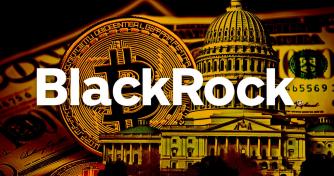On June 15, Chainalysis reported that cybercriminals are exploiting mining pools to mix their criminal proceeds with freshly mined cryptocurrencies.
The report pointed to a highly active deposit address at a mainstream crypto exchange. This wallet received a large number of cryptocurrencies from both mining pools and wallets linked to ransomware.
The address received a staggering $94.2 million worth of cryptocurrency, of which around 20%, or $19.1 million, came from ransomware-linked wallets. The address also received $14.1 million from mining pools.
Chainalysis found that both the ransomware wallet and the mining pool address sent funds to the exchange deposit wallet via intermediaries. However, in some cases, the ransomware wallet also sent funds directly to the mining pool.
This tactic is a “sophisticated attempt at money laundering,” Chainalysis said. The bad actors funnel funds to the exchanges through mining pools to create the illusion that the tainted funds are mining proceeds rather than linked to cybercrime. Therefore, the criminals are using the mining pools as a crypto mixer to avoid triggering alarms at the exchange.
This is a growing trend — Chainalysis found 372 exchange wallets that have received funds from mining pools and at least $1 million from ransomware-linked wallets. In total, these exchange addresses have received $158.3 million from ransomware wallets since 2018.
Scammers are also using mining pools to launder funds
Scammers are also employing the same tactic as ransomware attackers. For instance, funds linked to the BitClub Network scam, in which over $700 million was stolen, were mixed with Bitcoin obtained from a Russia-based mining operation in 2019, as per Chainalysis.
Moreover, the wallets on the exchanges also received funds from BTC-e, a defunct Russian crypto exchange. BTC-e was shut down in 2017 for facilitating the laundering of funds, including those linked to the Mt. Gox hack.
The criminals allegedly commingled funds from BitClub, BTC-e, and the Russian mining operation to obfuscate the origin of funds. The report stated,
“We believe it’s possible that the money launderers in this case purposely mingled funds from BitClub and BTC-e with those gained from mining in order to make it look like all of the funds sent to the two exchanges came from mining.”
Since 2018, such exchange addresses have received nearly $1.1 billion from scam-linked wallets. Additionally, such exchange wallets have received at least $1 million from mining pools during the period.
To combat this growing issue of illicit funds, Chainalysis suggests that mining pools and hashing services should implement strict wallet screening and know-your-customer procedures. Mining pools should verify the source of funds and reject all deposits from illicit addresses, it said.
Chainalysis’ full report is available here.
Latest Mining Stories
Disclaimer: Our writers' opinions are solely their own and do not reflect the opinion of CryptoSlate. None of the information you read on CryptoSlate should be taken as investment advice, nor does CryptoSlate endorse any project that may be mentioned or linked to in this article. Buying and trading cryptocurrencies should be considered a high-risk activity. Please do your own due diligence before taking any action related to content within this article. Finally, CryptoSlate takes no responsibility should you lose money trading cryptocurrencies.
The U.S. Federal Deposit Insurance Corp. (FDIC) has issued a cease and desist letter to OKCoin, warning the exchange about misleading statements regarding its insurance status.
In a June 15 letter, the FDIC alleged that the exchange and its senior executives made false representations stating or suggesting that certain crypto-related products were FDIC-insured.
The agency ordered the exchange to remove these claims from its website, social media accounts, marketing materials, mobile app, and any other customer-facing publication within 15 business days and provide written confirmation of compliance.
FDIC deposit insurance protects customers by providing coverage for their deposits in the unlikely event of the failure of an FDIC-insured bank. The federal agency insures customers’ deposits of up to $250,000 in registered banks, providing a safety net in case of bank failures. However, it does not cover digital assets deposits.
FDIC cites instances of misrepresentation
The agency cited three instances of misleading statements made by OKCoin concerning its insurance status. These included a blog post advertisement where the exchange claimed it was licensed across the U.S. and its accounts had FDIC insurance.
Another instance cited by the regulator involved the exchange’s statement that the Provenance Blockchain, and its HASH utility token, which is available from OKCoin, have received regulatory approval from SEC, OCC, FED, and the FDIC.
In the third instance, OKCoin’s Chief Marketing Officer tweeted that OKCoin offers FDIC insurance on USD deposits.
According to the FDIC, these statements contain false and misleading representations regarding FDIC deposit insurance and could mislead customers.
“OKCoin is not FDIC-insured and the FDIC does not insure non-deposit products. By not distinguishing between U.S.-dollar deposits and crypto assets, the statements imply FDIC insurance coverage applies to all customer funds (including crypto assets). In addition, the FDIC does not insure or endorse particular blockchains.”
An OKCoin spokesperson told CryptoSlate that:
“A core principle at Okcoin is to respect applicable laws and regulations, and we remain committed to collaborating with stakeholders including regulators whenever possible. Okcoin is aware of this matter and is taking immediate action to assess the statements flagged by the FDIC and address them as necessary.”
In 2022, the FDIC issued similar notices to FTX.US and Voyager Digital.
Updated with OKCoin’s statement on June 16 at 16:25 UTC.
Latest Bitcoin Stories
Disclaimer: Our writers' opinions are solely their own and do not reflect the opinion of CryptoSlate. None of the information you read on CryptoSlate should be taken as investment advice, nor does CryptoSlate endorse any project that may be mentioned or linked to in this article. Buying and trading cryptocurrencies should be considered a high-risk activity. Please do your own due diligence before taking any action related to content within this article. Finally, CryptoSlate takes no responsibility should you lose money trading cryptocurrencies.
The link between US Treasuries, the dollar-yen carry trade and Bitcoin
CryptoSlate's latest market report dives deep into the connection between the Japanese yen and U.S. Treasuries and its potential impact on Bitcoin.

















